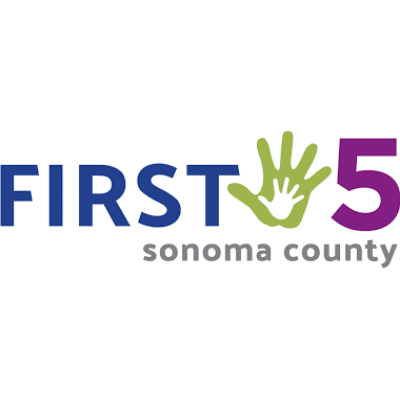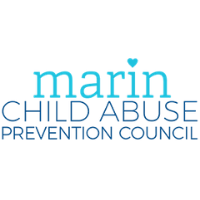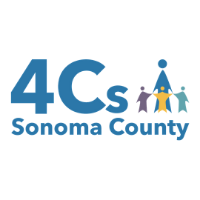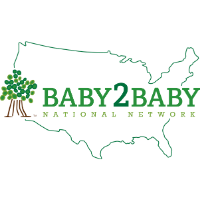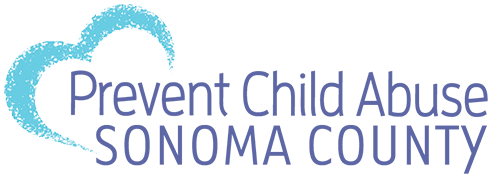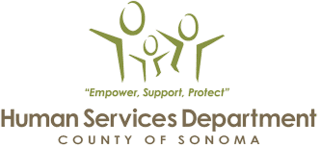Notice of Privacy Practices
THIS NOTICE DESCRIBES HOW MEDICAL INFORMATION ABOUT YOU MAY BE USED AND DISCLOSED AND HOW YOU CAN GET ACCESS TO THIS INFORMATION. PLEASE REVIEW IT CAREFULLY.
Your Privacy is Important to Us
Because we understand that medical information about you and your family members is personal, the Child Parent Institute is committed to protecting your medical information.
This notice will tell you about the ways in which we may use and disclose medical information about you. This notice also describes your rights and certain obligations we have regarding the use and disclosure of your medical information.
We are Required by a Federal Law called the Health Insurance Portability and Accountability Act (HIPAA) to:
- Make sure that medical information that identifies you is protected from inappropriate use and disclosure.
- Notify all affected individuals of a breach of unsecured protected health information.
- Give you this notice of our legal duties and privacy practices with respect to medical information about you; and
- Follow the terms of the notice that is currently in effect.
Changes to Our Privacy Practices
We reserve the right to change our privacy practices. We reserve the right to apply the revised practices to the medical information we already have about you as well as any information we receive after the revisions are made. A copy of the most current notice is posted where you receive care. The effective date of the notice is on the last page of the Notice of Privacy Practices as numeral V.
Uses and Disclosures of Medical Information
We use and disclose medical information in a manner that complies with federal and state laws and regulations. For example, federal laws require an authorization to disclose medical information related to drug or alcohol abuse. State laws require an authorization to disclose medical information related to mental health records, HIV services, genetic testing information and medical information related to substance abuse. Disclosure of this information can only be made with your written authorization.
If you authorize the use and disclosure of your medical information, you may revoke that authorization, in writing, at any time. If you revoke your authorization, all uses or disclosures of your medical information for the purposes covered by your written authorization will cease unless we have already acted in reliance on your authorization. We are unable to take back any disclosures we have already made prior to revoking your authorization.
Disclosures to Parents as Personal Representatives of Minors
In most cases, we may disclose your minor child’s medical information to you. In some situations, however, we are permitted or even required by law to deny your access to your minor child’s medical information. An example of when we must deny such access, based on the type of health care, is when a minor who is 12 or older seeks care for a communicable disease or condition. Another situation when we must deny access to parents is when minors have adult rights to make their own health care decisions.
THE FOLLOWING INFORMATION DESCRIBES THE WAYS THAT WE MAY USE AND DISCLOSE YOUR MEDICAL INFORMATION.
For Treatment.
We may use and disclose your medical information to provide, coordinate and manage your health care and any related services. We may disclose your medical information to doctors, nurses, technicians, therapists and county health care personnel who are involved in your care. Doctors and health care providers are permitted to share information about your care to help provide you with timely and appropriate health care services. For example, health care providers may share your medical information in order to coordinate the different things you need, such as prescriptions, lab work and x-rays.
For Payment.
We may use and disclose medical information about you so that the treatment and services you receive may be billed to and payment may be collected from you, or the health plan responsible for the payment of your health care services. Health Plans include your private insurance company, Medicare or MediCal/Partnership. For example, we may need to give your health plan information about health care services you received so your health plan can pay your health care claim. We may also tell your health plan about a treatment you are going to receive in order to obtain prior approval or to determine benefit eligibility.
For Health Care Operations.
We may use and disclose medical information about you for health care operations. These uses and disclosures are necessary to make sure that you receive quality care. For example, we may use medical information to review our treatment and services and to evaluate the performance of our staff in caring for you. We may use and disclose medical information to tell you about or recommend possible treatment options or alternatives that may be of interest to you or to contact you as a reminder that you have an appointment for treatment or medical care. We may use and disclose medical information to tell you about health-related products or services that may be of interest to you.
As Required by Law.
We may use and disclose medical information about you as required by law. For example, we may be required to disclose information for the following purposes:
- For judicial and administrative proceedings pursuant to legal authority.
- To report information related to victims of abuse, neglect or domestic violence.
- To assist law enforcement officials in their law enforcement duties.
Public Health Activities.
Your health information may be used or disclosed for public health activities such as assisting public health authorities or other legal authorities to prevent or control disease, injury, or disability, or for other public health oversight activities.
Health Oversight Activities.
Your health information may be disclosed for health oversight activities authorized by law, such as audits, investigations and inspections. Health oversight activities are conducted by state and federal agencies that oversee government benefit programs and civil rights compliance.
Decedents.
Health information may be disclosed to funeral directors or coroners to enable them to carry out their lawful duties.
Organ/Tissue Donation.
If you are an organ donor, we may disclose your health information to organizations that handle organ procurement or organ, eye or tissue transplantation or to an organ donation bank, as necessary to facilitate such donation and transplantation.
Research.
We may use and disclose your health information for research purposes that are subject to special approval processes or when an institutional review board or privacy board has reviewed and approved the research proposal and established protocols to ensure the privacy of your health information.
Health and Safety.
Your health information may be disclosed to avert a serious threat to your health or safety or that of any other person pursuant to applicable law.
Active Military, Veterans, National Security and Intelligence.
If you are or were a member of the armed forces, or part of the national security or intelligence communities, we will disclose your health information when required by military command or other government authorities.
Worker’s Compensation.
Your health information may be used or disclosed in order to comply with laws and regulations related to Worker’s Compensation.
Family and Friends.
We may disclose information about you to family members or friends if we can infer from the circumstances, based on professional judgment that you would not object.
YOUR INDIVIDUAL RIGHTS REGARDING YOUR MEDICAL INFORMATION
If you have any questions about this Notice or your Individual Rights, you may contact the Child Parent Institute Compliance/Privacy Officer at: (707) 585 – 6108
All requests to exercise your individual rights must be submitted in writing to:
Compliance/Privacy Officer
CPI Child and Family Counseling Clinic
3650 Standish Ave.
Santa Rosa, CA 95407
Your Right to Inspect and Copy.
You have the right to inspect and to obtain a copy of the medical information maintained by the Child Parent Institute. Usually, this includes medical and billing records, but may not include some mental health information.
Requests to inspect or obtain a copy of your medical information must be submitted in writing. If you request a copy of the information, you will be charged a fee for the costs of copying, mailing or other supplies associated with your request. We will notify you of the cost involved and you may choose to withdraw or modify your request before any costs are incurred.
Your Right to Amend.
If you feel that medical information we have about you is incorrect or incomplete, you may submit a written request to us to amend the information. You have the right to request an amendment for as long as the County of Sonoma keeps the information.
You must provide the reason that you are requesting the amendment. We will deny your request for an amendment if it is not in writing or it does not include a reason to support the request. In addition, we may deny your request if you ask us to amend information that:
- Was not created by us, unless the person or organization that created the information is no longer available to make the amendment.
- Is not part of the medical information kept by or for the Child Parent Institute.
- Is part of the information which you would not be permitted to inspect and copy.
- Is accurate and complete.
Even if we deny your request for amendment, you have the right to submit a written addendum, not to exceed 250 words, with respect to any item or statement in your record you believe is incomplete or incorrect. If you clearly indicate in writing that you want the addendum to be made part of your medical record, we will attach it to your records and include it whenever we make a disclosure of the item or statement you believe to be incomplete or incorrect.
Your Right to an Accounting of Disclosures.
You have the right to request an accounting of disclosures we made of medical information about you. This list will not include disclosures made for the purposes of treatment, payment, or our health care operations, or disclosures that you authorized.
Your request must be in writing and include a time period. The time period may not be longer than six years and may not include dates prior to April 14, 2003. Your request should indicate in what form you want the list of disclosures (for example, on paper, electronically). The first list you request within a 12-month period will be free. For additional lists, we may charge you for the costs of providing the list. We will notify you of the cost involved and you may choose to withdraw or modify your request before any costs are incurred.
Your Right to Request Restrictions.
You have the right to request a restriction or limitation on the medical information we use or disclose about you for treatment, payment or health care operations. We are not required to agree to your request for restrictions. If we do agree, we will comply with your request unless the information is needed to provide you with emergency treatment or for the purposes of public health reporting or as required by law. We will accommodate all reasonable requests.
If you wish to request a restriction or limitation on the use or disclosure of your medical information, your written request must tell us:
- What information you want to limit.
- Whether you want to limit our use, disclosure or both.
- To whom you want the limits to apply, for example, disclosures to your spouse.
You also have the right to request to receive communications about your health care by alternate means or at alternative locations. If you wish to request that communications regarding your medical information be provided using alternate means or at alternate locations, your written request must specify:
- How or where you wish to be contacted.
- The method you would like us to use to communicate with you, for example, the alternative address, phone number or email address.
Your Right to Receive a Paper Copy of This Notice.
You have the right to a paper copy of this notice. You may ask us to give you a copy of this notice at any time. Just ask for a copy of the current Notice of Privacy Practices. Or you may request that a copy be sent to you by contacting the Child Parent Institute at (707) 585 – 6108. Please state that you wish to receive a Notice of Privacy Practices and provide your name and mailing address. A copy will be sent to you within 5 business days of your request.
Complaints.
If you believe your privacy rights related to the management of your health information maintained by the Child Parent Institute have been violated, you may file a complaint with our Compliance/Privacy Officer or with the Secretary of the Department of Health and Human Services. To file a complaint with the Child Parent Institute please submit your complaint to:
Compliance/Privacy Officer
CPI Child and Family Counseling Clinic
3650 Standish Ave.
Santa Rosa, CA 95407
You will not be penalized for filing a complaint. Complaints must be submitted in writing.
Effective Date of this Notice: This notice went into effect on September 23, 2013




